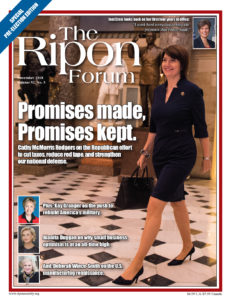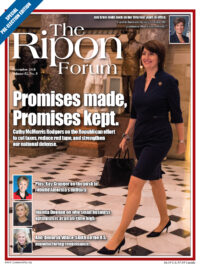 Like a lot of other people who moved to the Washington area from somewhere else, I often check my hometown newspaper to stay on top of what is happening in the area where I grew up.
Like a lot of other people who moved to the Washington area from somewhere else, I often check my hometown newspaper to stay on top of what is happening in the area where I grew up.
My hometown paper is the Youngstown Vindicator. In the 32 years since I moved away, the news has often been pretty grim. The area has one of the highest crime rates in the nation, more people are moving away from the area than moving in, and a report last year called Youngstown the most distressed small, mid-sized city in the U.S.
Truth be told, it’s been that way for quite a while a now. Most people say the turning point in the area occurred on September 19, 1977. Referred to today as “Black Monday,” it was the day that Youngstown Sheet & Tube announced it was closing the Campbell works, the largest steel mill in the area. In all, 5,000 people lost their jobs that day. And as Salena Zito reported last year for the New York Post to mark the 40th anniversary of the fateful day, it was only just the beginning.
“Within a decade, 40,000 jobs were gone,” Zito wrote. “Within that same decade, 50,000 people had left the region, and by the next decade, that number was up to 100,000. Today the 22 miles of booming steel mills and the support industries that once lined the Mahoning River have mostly disappeared — either blown up, dismantled or reclaimed by nature. If a bomb had hit this region, the scar would be no less severe on its landscape.”
Which brings me back to the Youngstown Vindicator.
A few weeks ago, the paper published an article that was headlined: “Local manufacturing companies struggling to fill open jobs.” The article talked about how area businesses which were producing products ranging from steel pipes to electromagnets were having problems finding qualified workers for positions that paid up to six-figures. The problems are due not only to a shortage of skilled trades workers, but to the fact that many who are skilled are also addicted to opioids and are therefore unable to pass the drug test that is required to get the job.
It is a serious problem, and one that, to their credit, lawmakers like Senator Rob Portman are working to address. And while it clearly represents something of a challenge for companies in the Youngstown area, it also represents, for all intents and purposes, a surprising bit of good news for an area that has not seen much in recent years. Which is why it caught my eye. It also reminded me of another surprise I saw in the area in recent years. This surprise occurred during a visit my wife Lisa and I made to the area in October of 2016. Driving through the area around Youngstown and Lisa’s hometown just across the border in western Pennsylvania, we were both struck by the number of yard signs we saw. For every one yard sign we saw for Hillary Clinton, we saw nine for Donald Trump.
Now, anecdotes can be a dangerous thing in politics. They present you with a snapshot when, more often than not, the bigger picture must also be viewed. Usually, only in hindsight does it become apparent that an anecdote represents something more — a surprise at the time that is part of a bigger trend. Seeing an overwhelming number of Trump yard signs in overwhelmingly Democratic areas of Ohio and Pennsylvania in October 2016 was clearly a surprise. When he won both states two weeks later, it was clearly something more.
Today, I wonder the same thing about that article in the Youngstown Vindicator. Pick up the paper or turn on the news here in Washington, and all you read about or see is the latest reporting on Trump’s Tweets or the Mueller probe or the latest scandal to rock DC. Make no mistake — I think that many of these matters, especially the question of Russian interference in our elections, merit reporting and investigation. But when I think about the people in Youngstown, I wonder — are they paying attention to that, as well? Or are they more interested in the surprising bit of good news they read about in their hometown newspaper that, they hope, after all these years of misery, turns into something more?
We’ll have a better sense of these and other questions when Americans cast their ballots in the mid-terms on November 6th. In the meantime, we are publishing this special pre-election edition of The Ripon Forum to examine some of the accomplishments in Congress over the past two years, and some of the issues people will be thinking about when they vote.
As with all of our editions, we appreciate your readership, and welcome any comments you may have.
Lou Zickar
Editor of The Ripon Forum
louzickar@clu.ccw.mybluehost.me




